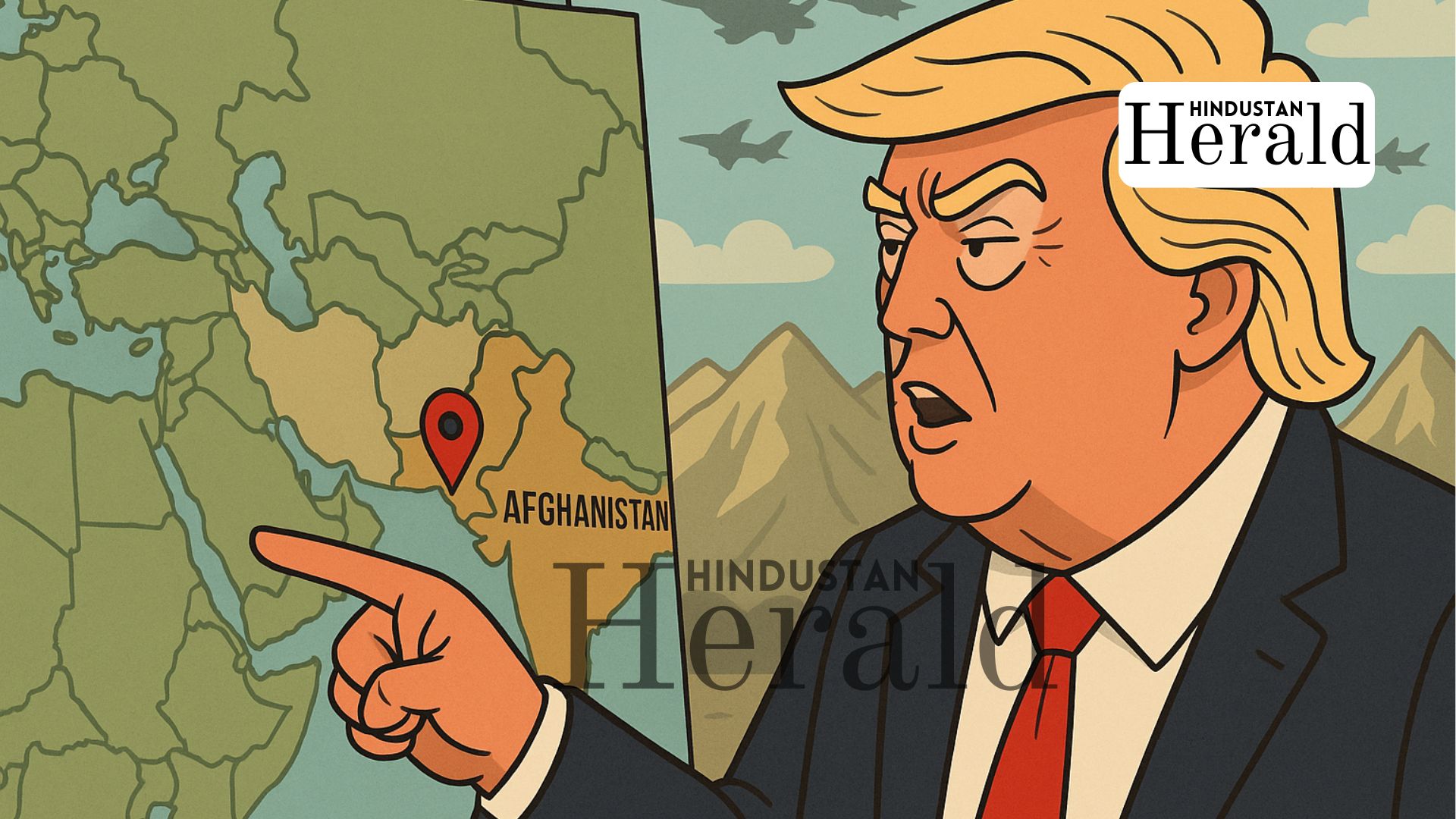New Delhi, September 21: The fight over Bagram Air Base has roared back into the headlines, and this time it is the U.S. President himself putting down the marker. Donald Trump is demanding the Taliban return the base to American hands. His warning was blunt if they refuse, “bad things” will happen.
Trump delivered the threat on Saturday, in language that sounded more like a campaign rally than a diplomatic statement. “If Afghanistan doesn’t give Bagram Airbase back to those that built it, the United States of America, BAD THINGS ARE GOING TO HAPPEN!!!” he said. When reporters pressed him on whether this meant U.S. troops could return to Afghanistan, Trump sidestepped, saying only, “We want it back right away.”
The line was classic Trump, heavy on menace and light on specifics, but it immediately set off alarm bells from Kabul to Beijing.
Why Bagram Still Haunts Washington
Even after the withdrawal in 2021, Bagram Air Base has remained a sore point in American politics. At its height, it was a fortress north of Kabul, with its own airstrips, barracks, prison blocks and hospitals. For two decades, it was the hub of U.S. operations in Afghanistan. Then, in a single night in July 2021, American forces slipped out. By morning, the Taliban had walked in.
To the Taliban, it became a trophy. To Washington, a symbol of failure. And to Trump, it is now leverage. He has been repeating the same argument for months, saying that Bagram sits at the crossroads of Asia, close enough to China to make it invaluable. Giving it up, he insists, was a mistake the U.S. cannot afford.
What The Taliban Will Weigh
So far, there has been no official response from Kabul. But the Taliban’s position has barely budged in years, no foreign soldiers, no bases, no exceptions. Relinquishing Bagram would be a humiliation and almost unthinkable for a group that defines itself on resisting foreign occupation.
Inside Afghanistan, the memories attached to the base are raw. Families remember drone strikes and detentions. To ordinary Afghans, Bagram is not just concrete runways and barbed wire, it is a reminder of a war that left deep scars. That makes it even harder for Taliban leaders to agree to anything that looks like handing it back.
Regional Nerves
Trump’s threat does not just rattle Kabul. It ripples outward. China views Bagram as uncomfortably close to Xinjiang and Tibet, and any American return would be read as a provocation. Pakistan, already juggling strained ties with Washington and complex dealings with the Taliban, will be under fresh pressure. And Russia, with eyes on Central Asia, will resist any fresh U.S. military footprint in what it sees as its backyard.
Every country around Afghanistan has its own memories of U.S. troops on the ground. None of them are eager to see it again.
The Next Move
Behind the scenes, it is not all threats. Reports in the Wall Street Journal say U.S. officials have already opened quiet talks with Taliban representatives, floating the idea of a limited American presence at Bagram for counterterrorism purposes. That kind of deal could let both sides claim a win, Washington would say it regained its foothold, while the Taliban could frame it as a controlled partnership, not a surrender.
But public threats make compromise harder. By going out in front of cameras and promising consequences, Trump has raised the stakes. The Taliban, if they do give an inch, will risk looking weak. Trump, if he does not follow through, risks looking like he backed down.
The base that America built, abandoned, and now wants back is once again a frontline, not of war yet, but of words and political will. And in this part of the world, words can move quickly toward something more dangerous.
Stay ahead with Hindustan Herald — bringing you trusted news, sharp analysis, and stories that matter across Politics, Business, Technology, Sports, Entertainment, Lifestyle, and more.
Connect with us on Facebook, Instagram, X (Twitter), LinkedIn, YouTube, and join our Telegram community @hindustanherald for real-time updates.
Specializes in South Asian geopolitics and global diplomacy, bringing in-depth analysis on international relations.






